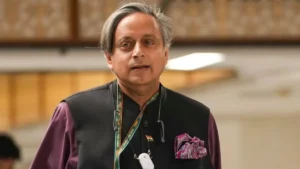Mahatma Gandhi, often referred to as the as the Father of the Nation in India, left an indelible mark on the world through his life and his unique methods of struggle for justice and independence. His influence continues to inspire and shape the way people think and act, even decades after his death. Let’s delve into the life, movements and famous quotations of this iconic figure on this Martyr’s Day.
Mahatma Gandhi: Important Details
Name: Mohandas Karamchand Gandhi
Date of Birth: 2nd October 1869
Birthplace: Porbandar, Gujarat
Father: Karamchand Gandhi
Mother: Putlibai
Death: 30th January 1948, Delhi
Nationality: Indian
Wife: Kasturba Gandhi
Professions: Lawyer, Activist, Politician and Writer
Early Life and Family
Mahatma Gandhi, born on October 2, 1869, in Porbandar, Gujarat, was the son of Karamchand Gandhi and Putlibai. His mother, from an affluent Vaishnavite family, deeply influenced him with stories of truth and mortality from a young age. Mohandas was his father’s fourth child and his father served as the Diwan of Porbandar. At the tender age of thirteen, he married Kasturba, who supported him unwaveringly throughout his life. Together, they had four sons-Manilal, Harilal, Devadas and Ramdas.
Educational Life
Mohandas received his early education in Rajkot, where he studied subjects like history, geography, arithmetic and languages. His education was briefly disrupted due to his early marriage, but he eventually resumed his studies. In 1888, he enrolled at Samaldas College in Bhavnagar. However, he felt unsatisfied with his education and managed to convince his parents to let him study law in London. Before leaving for London, he made a solemn promise to abstain from non-vegetarian food, alcohol and women. In London, he attended Inner Temple Law College and became part of a vegetarian society, where he was introduced to the Bhagavad Gita, which had a profound impact on him.
In South Africa
In 1893, Gandhi moved to South Africa to work as a lawyer. It was there he had a transformative experience with racial discrimination when he was forcibly removed from a first-class train compartment reserved for white passengers. This incident awakened his sense of justice and he decided to fight against racial discrimination. In response, he founded the Natak Indian Congress in 1894 and became a leader of the Indian community there. The wisdom of ancient Indian literature, including the Tirukkural, also influenced him.
Inspired by the idea of satyagraha (nonviolent resistance), Gandhi organized nonviolent protests in South Africa to combat injustice and discrimination against Indians and Africans. After spending 21 years in South Africa, he returned to India in 1915, a transformed man with a newfound wisdom and confidence.
Role of Mahatma Gandhi in Indian Independence Movements
Upon returning to India, Gandhi joined the Indian National Congress, mentored by Gopal Krishna Gokhale. He led various movements for India’s independence, including the Champaran and Kheda satyagrahas. In 1917-18, he led the Non-Cooperation Movement, Civil Disobedience Movement, Swaraj and the Quit India Movement.
Key Movements
Key movements led by Mahatma Gandhi are as follows:
- Champaran Satyagraha: Gandhi supported indigo cultivators suffering under the oppressive Tinkathia system, successfully leading a civil disobedience campaign that improved their conditions.
- Kheda Satyagraha: Gandhi joined a campaign for tax remission by farmers in Kheda, Gujarat, due to poor harvests, eventually leading to the British government accepting their demands.
- Khilafat Movement: Gandhi supported the movement to protest against injustice in Turkey and the British government, becoming a national leader after its success.
- Non-Cooperation Movement: After the Jallianwala Bagh massacre, Gandhi initiated a non-cooperation movement against British rule, advocating for peaceful resistance and swadeshi (boycott of British goods).
- Civil Disobedience Movement: Gandhi offered to suspend the Civil Disobedience Movement if the British government accepted his 11 demands, but when they did not respond, the movement continued with increased vigor.
Role of Mahatma Gandhi in Indian Independence
India achieved independence in 1947, but the joy was marred by communal riots. Gandhi, deeply disappointed, fasted and appealed for peace. Tragically, on January 30, 1948, in New Delhi’s Birla House, Gandhi was assassinated by Nathuram Vinayak Godse at the age of 78. The site of his assassination, Birla House, is now known as Gandhi Smriti.
Martyr’s Day: Remembering Gandhi’s Sacrifice
Tragically, on January 30, 1948, Mahatma Gandhi was assassinated by Nathuram Godse, a Hindu nationalist who opposed Gandhi’s advocacy for peace and his views on India’s partition. His death marked the end of an era, but his principles continue to guide people seeking justice and equality worldwide.
Literacy Words and Awards
Gandhi was not only a freedom fighter but also a prolific writer. His literacy works include “Hind Swaraj,” “The Story of My Experiments with Truth” and “Indian Home Rule.” He was named the Man of the Year by Time Magazine in 1930 and is considered one of the top 25 political icons of all time.
Legacy and Beyond
Mahatma Gandhi’s life and philosophy serve as a beacon of hope and inspiration for generations to come. His commitment to truth, non-violence and social justice continues to influence movements and leaders worldwide. Gandhi’s simple lifestyle and profound wisdom made him a symbol of humility and resilience, reminding us that even in the face of immense adversity, one person can change the course of history for the better.
Find More General Studies News Here




 Which Lake is known as the Jewel of Udai...
Which Lake is known as the Jewel of Udai...
 Which is the Largest Banana Producing St...
Which is the Largest Banana Producing St...
 Shashi Tharoor Conferred Honorary D.Litt...
Shashi Tharoor Conferred Honorary D.Litt...








